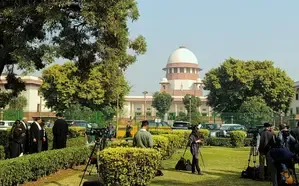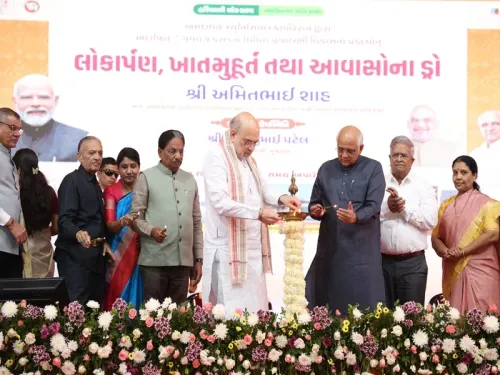Should the Centre Develop a Policy to Stop Foreign Accused from Fleeing?

Synopsis
Key Takeaways
- The Supreme Court advocates for a policy to curb bail misuse.
- A Nigerian accused recently fled after bail was granted.
- Extradition challenges arise due to treaty limitations.
- Clear guidelines are essential for courts to prevent absconding.
- The Central Government is urged to take necessary actions.
New Delhi, Sep 3 (NationPress) The Supreme Court has urged the Centre to consider the establishment of a comprehensive policy aimed at preventing foreign nationals accused of crimes in India from fleeing the country. This issue gained prominence when a Nigerian national, involved in a significant criminal case, reportedly escaped back to his homeland after being granted bail by the Jharkhand High Court in May 2022.
In December of the previous year, the apex court annulled the bail order, ordering the authorities to ensure that the accused returns to India to stand trial.
The court highlighted the necessity to implement “something more... as these incidents are recurring, thus a proper set of guidelines needs to be developed and communicated to all relevant courts to prevent such occurrences in the future.”
During the most recent session, a Bench comprising Justices Dipankar Datta and Augustine George Masih was informed by Additional Solicitor General Raj Kumar Bhaskar Thakre, representing the Centre, that extradition was improbable due to the lack of a bilateral treaty with Nigeria.
The Union Ministry of External Affairs, in a correspondence to the Solicitor General, stated, “In the absence of a bilateral extradition treaty between India and Nigeria, the Nigerian authorities are unlikely to extradite their own national.”
Considering the absence of a bilateral treaty between Nigeria and India, the apex court remarked that pursuing the matter further would yield “no useful purpose.”
While disposing of a Special Leave Petition (SLP) submitted by the Jharkhand government, the Justice Datta-led Bench remarked, “The special leave petition stands disposed of, affirming the cancellation of bail while allowing the Central Government to devise a suitable policy or take other necessary actions to ensure that foreign nationals do not evade justice after committing crimes in India.”










